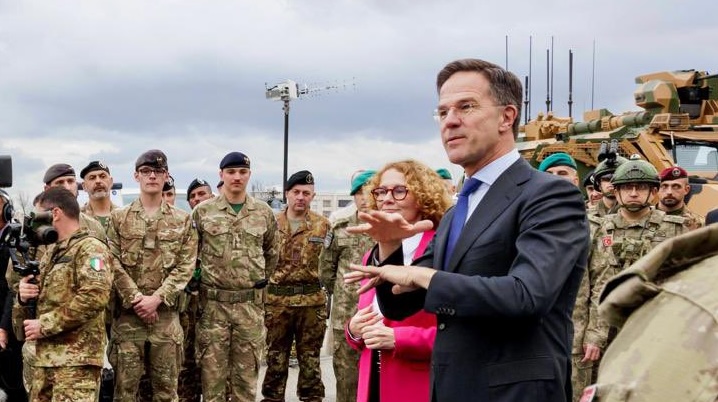Already a subscriber? Make sure to log into your account before viewing this content. You can access your account by hitting the “login” button on the top right corner. Still unable to see the content after signing in? Make sure your card on file is up-to-date.
Despite some European allies saying they’re concerned over the United States’ stance with Russia right now, the head of NATO has said that the US and all European allies agree Russia is a “long-term threat.”
Some shit you should know before you read: If you’re unaware, the current US stance toward Russia is drawing growing scrutiny from some EU allies, as reports suggest Washington may be considering easing certain sanctions on Moscow as part of broader peace negotiations. Critics argue that the US has, in recent months, appeared more forceful with Ukraine than with Russia—pressuring Kyiv to accept ceasefires and consider territorial concessions, even as Russia continues its military offensive. This perceived imbalance has sparked concern among Ukraine’s allies, who fear it could reward aggression and set a dangerous precedent. Despite this, President Donald Trump has pushed back on these claims, insisting that his administration is applying pressure to both sides equally and that he is not favoring Russia or Ukraine but rather working to “end the killing” quickly through diplomacy.

What’s going on now: After wrapping up a meeting with President Trump and top US officials at the White House, NATO Secretary-General Mark Rutte said, “We all agree in NATO that Russia is the long-term threat to NATO territory — to the whole of the Euro-Atlantic territory,” despite the US shifting focus towards the Indo-Pacific because of China. He also praised the current trajectory of the alliance, noting, “This is really a NATO which is stronger, which is fairer, which is also more lethal… particularly the European and Canadian side, more and more making sure that we equalize with what the US is spending.”
Rutte also stressed optimism surrounding ongoing peace talks, describing recent diplomatic developments as “huge steps” and arguing that the “ball is in Russia’s court” after Ukraine agreed to a proposed ceasefire. “There is something on the table now, I think, where the Ukrainians are really playing ball,” he said, though he refrained from disclosing specifics about the proposals being discussed. When asked if he believed Russian President Vladimir Putin truly wanted peace, Rutte responded, “I don’t know. I worked with him for four years between 2010 and 2014 when I was Prime Minister of the Netherlands and I’ve stopped trying to read his mind.”
This comes as multiple news outlets, including the Financial Times, are reporting Rutte’s meeting with Trump was focused on warning US officials against brokering a settlement that aligns with Kremlin demands.






